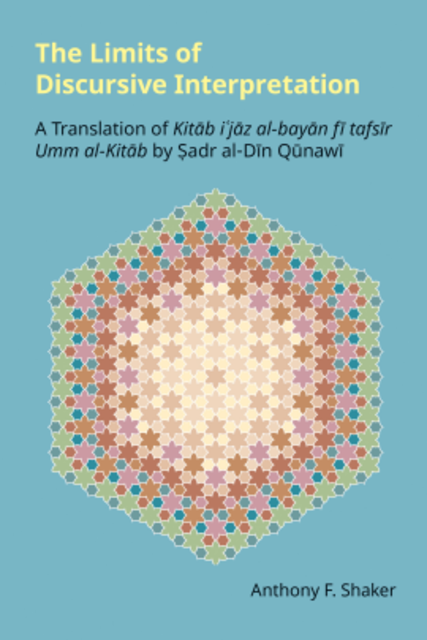LIBRARY COLLECTIONS
Complete Collection
Islamic Studies
ACCESS
Subscribers can access the eBook from the Read Only tab.
A Translation of Kitāb iʿjāz al-bayān fī tafsīr Umm al-Kitāb by Ṣadr al-Dīn Qūnawī
Ṣadr al-Dīn Qūnawī (d. 1274) is arguably the most important thinker of the generation following the main founders of medieval philosophy—al-Fārābī, Ibn Sīnā, Ibn ʿArabī and Suhravardī—and before Mullā Ṣadrā. Yet, almost nothing of his writings has been translated into English. In this influential work he independently explores speech (divine and human) as the unfolding relationality of knowing and being.
This is the first annotated translation of his magnum opus The Limits of Discursive Interpretation. The Translator’s introduction and notes shed a detailed light on the linguistic sources of Qūnawī’s lexicon. The Introduction also summarizes the key ideas of the book and explains their significance to philosophy.
In Part One Qūnawī begins by arguing that the failure of theoretical proofs to establish the reality of a thing does not itself disprove that reality. He elucidates the canons of thinking in relation to ‘tasting’ (experience) and the question of the ‘realities of things’ where knowing and being unfold dynamically from their ‘root’ in divine hiddenness and manifestation. He goes on to detail the concepts and the rules of relational subordination that govern these realities according to rootedness and mutual distinctions. Many of these tools are derived from linguistics, which the translator brings to bear on Qūnawī ‘s work for the first time. They enable him to transform the narrow sense in which Ibn Sīnā declared man incapable of grasping the realities of things. In the end, according to Qūnawī, without a proper understanding of rootedness as the source of the realities’ mutual distinctions, thinking remains relational, unequal to the thinking subject’s goal of self-realization and incapable of fully rendering the real (not to be confused with empirical facticity) without folding back on itself.
In Part Two he details the semiology by which, not only the contents of the Qur’ān but, primarily the ontological dimensions of God’s speech are disclosed as the veiling and unveiling, exteriorization and interiorization of being.

ISBN-13 (Hardback) 9781800504165
Price (Hardback) £75.00 / $100.00
ISBN (eBook) 9781800504172
ISBN (ePub) 9781800504738
Price (eBook & ePub) Individual £75.00 / $100.00
Institutional £75.00 / $100.00
Publication 10/09/2024
Pages 558
Size 234 x 156mm
Readership scholars
Only users granted permission may view this project's texts, resources, and other content.
We use cookies to analyze our traffic. Please decide if you are willing to accept cookies from our website. You can change this setting anytime in Privacy Settings.